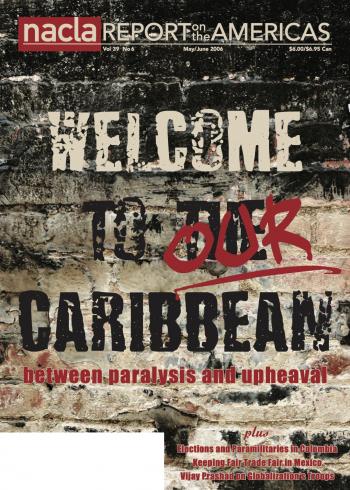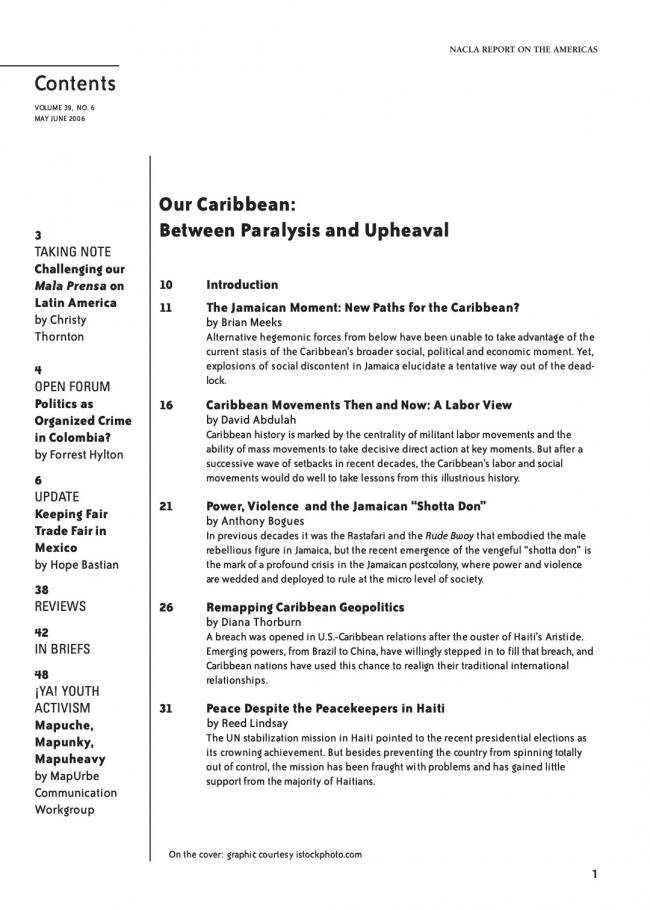Welcome To Our Carribean: Between Paralysis and Upheaval

There is a kind of grand heroic narrative that can be told, in fact that must be told, about the contribution of Caribbean resistance to our modernity. For example, in his book, Silencing the Past, anthropologist Michel-Rolph Trouillot asserts that the Haitian Revolution represented a truly universal and previously unthinkable claim to liberty in its insistence on the right of slaves, indeed all subject peoples, to win that freedom by armed struggle—an idea that Western “free” nations did not accept well into the twentieth century.
One thing that clearly emerges in these pages is that, despite the challenges of fragmentation, multiple languages, differing cultural legacies and distance, Caribbean communities, activists and intellectuals are seriously engaged with the shift to the left by their main- land neighbors. With this Report, which focuses on areas of the Caribbean less usually covered in the pages of this magazine, we hope to renew a sustained conversation between the Caribbean and Latin America at a crucial time—when the Caribbean finds itself teetering between paralysis and upheaval, promise and oblivion.

